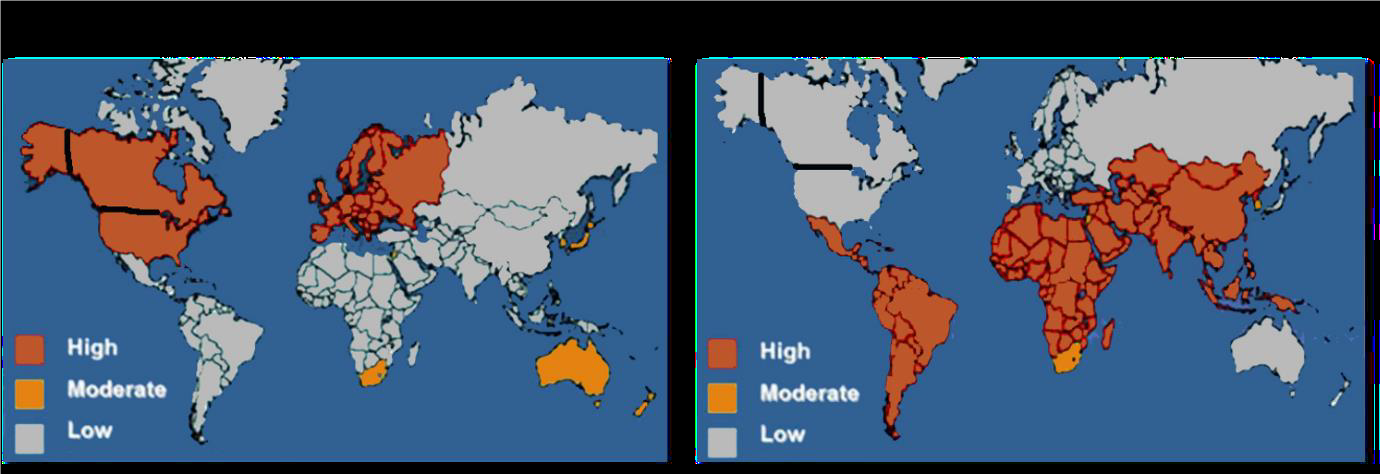Fighting autoimmune diseases by mimicking intestinal worms’ tactics
Zohar Milman, M.Sc
The hygiene hypothesis proposes that the stimulation of the immune system by helminth (intestinal worms) or microbes, protects from the development of autoimmune diseases. Thus, where there is higher incidence of helminth infestation, there is lower incidence of autoimmune diseases (Figure 1).
Oral administration of helminth has been previously proved to positively affect patients suffering from various autoimmune diseases like multiple sclerosis, colitis, lupus and rheumatoid arthritis. Consequently, many drug developers have searched for a synthetic molecule that will mimic helminth’s immune-modulatory response, although with little success.
Phosphorylcholine is a natural small molecule secreted by helminth. Helminth secrete immunomodulatory molecules mainly comprising of phosphorylcholine (PC)-moieties glycoproteins into the host environment, as part of their immune regulation strategy in order to survive within the host.
TRS is a novel bio-inspired molecule, based on the hygiene hypothesis. It is a tuftsin-phosphorylcholine conjugate, a relatively small synthetic molecule, based on two naturally occurring agents that are covalently attached together, namely phosphorylcholine and tuftsin. The molecule has been shown to be effective in several animal models of autoimmune and inflammatory diseases, and is being further developed towards human clinical trials.

Figure 1: global autoimmune disorders incidence vs. helminth incidence